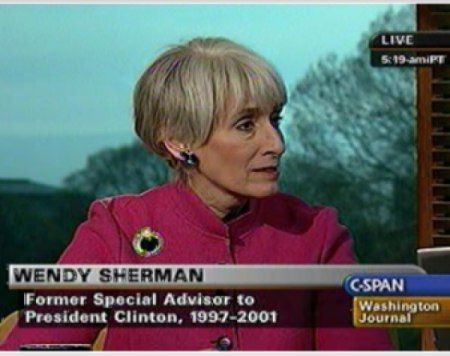"With Congress due to vote by Sept. 17 on the Iran nuclear deal, there’s a warning worth revisiting. It goes like this: The president is pushing a historic nuclear agreement, saying it will stop a terror-sponsoring tyranny from getting nuclear weapons. And up pipes the democratically elected leader of one of America’s closest allies, to say this nuclear deal is mortal folly. He warns that it is filled with concessions more likely to sustain and embolden the nuclear-weapons-seeking despotism than to disarm it.
This critic has more incentive than most to weigh the full implications of the deal, because his country is most immediately in harm’s way — though it has not been included in the nuclear talks. He notes that the nuclear negotiators have sidelined such glaring issues as human rights, and warns that Washington is naive, and the U.S. is allowing itself to be manipulated by a ruthless dictatorship.
No, the critic I’m referring to is not Israel’s Prime Minister Benjamin Netanyahu, though he has warned of precisely such dangers in the Iran nuclear deal. I am citing the warnings voiced 21 years ago by the then-President of South Korea, Kim Young Sam, as the Clinton administration bargained its way toward the 1994 nuclear deal with North Korea known as the Agreed Framework.
As it turned out, Kim Young Sam’s misgivings were right on target. The 1994 Agreed Framework did not stop North Korea’s pursuit of the bomb. Instead, it became a pit stop on North Korea’s road to the nuclear arsenal it is amassing today.
Kim warned that the deal was “a half-baked compromise” that would “prolong the life of the North Korean government and send the wrong signal to its leaders.” It would result in “more danger and peril,” not less.
President Clinton ignored the warning. Signing the deal, brokered by Jimmy Carter, he claimed that it was “good for the United States, good for our allies, and good for the entire world.” It was “a crucial step drawing North Korea into the global community.”
That isn’t how it worked out. Despite our forwarding $4.6 billion for two lightwater reactors and oil for heating and electricity, North Korea cheated continuously, and became a nuclear power in 2006. President Bush then promptly tried again, reopening negotiations with Pyongyang and offering more incentives. North Korea, already the biggest recipient of U.S. aid in East Asia, took the money, then broke off negotiations two years later.
When Kim Jong Il launched an ICBM over Japan in 1998, Clinton sent one Wendy Sherman, a former social worker and Democratic bundler (head of EMILY’S list) to negotiate a missile deal. She brought with her a basketball signed by Michael Jordan. Kim turned her down.
Sherman was back again in Geneva, leading the negotiations with Teheran, having learned nothing, except maybe not to offer NBA paraphernalia to the mullahs.
Of course there are important differences between the 1994 and 2015 deals. But these don’t augur well for world peace. Compared to Iran’s attitude toward Israel and the U.S., North Korea feels fraternal affection for Seoul and Washington. Compared to Tehran, Pyongyang respects human rights and international law. Above all, Stalinists don’t believe in a global jihad. What was naiveté on the part of the U.S. team in 1994 was something more malignant in 2015."
Food for thought. Or should I say Fools bought out for naught.
MFBB.

No comments:
Post a Comment